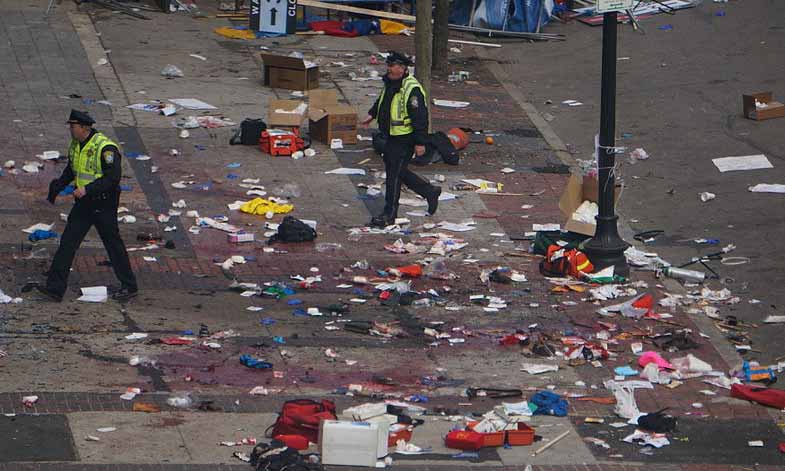Last week’s news was dominated by the attacks at the Boston Marathon, and it is this week that we are all just beginning to recover. The United States is no stranger to acts of terrorism at this point, but that does not mean that each one is not just as raw and painful as the last. As the thoughts of the nation go unreservedly towards those affected by the attack, and the inhabitants of the still-shocked city of Boston, perhaps I can provide some sort of insight into the way in which terrorism within the United States is perceived overseas.
The rest of the world is also not a stranger to acts of terrorism, and in the current global climate such acts are arguably more common than ever. The sadness that each one entails affects all people differently; dependent upon different cultures, times and places, but perhaps one small silver lining is that a heightened sense of global unity is almost inevitable. The nature of the media within contemporary society is that as soon as something such as this happens, it almost immediately dominates the rest of the world’s media. By this point, it is assured that every instance of terrorism in the Western world resonates far beyond the borders of the country in which it occurs.
September 11, 2001 is, of course, the point against which all ensuing attacks in the United States have been considered, and global response has always followed along the same lines: sympathy, solidarity, and peoples’ wish to help in any way they can. It is perhaps one small consolation that times of crisis are an ideal trigger in helping a society to reveal the inherent goodness of its people.
In the United Kingdom, terrorism was almost commonplace long before the year 2001. The Irish Republic Army (IRA), a group fighting for Northern Ireland’s right to leave the United Kingdom and become part of a unified Ireland, detonated more than 30 bombs in London between the late 1960s and the late 1990s, in a period referred to as ‘The Troubles”. In 2005, my home city of London was once again the victim of terrorism with the 7/7 bombings, in which 56 people died and more than 700 were injured.
Indeed, the world is an increasingly dangerous place, and it is not simply the United States that is scarred by a history of terrorist attacks. However, what is commendable is the way in which U.S. society responds to such terrible events. Just one small example is a banner that flew above Yankee Stadium on the night of the attack, clearly displaying the Red Sox logo and reading “United we Stand,” signifying New York’s solidarity with the city of Boston. Such grace in putting aside fierce rivalries in the aftermath of such horror is truly uplifting.
Ultimately, I feel as though the sentiment displayed here is the same all around the world, particularly in the UK, where deep cultural and historical ties are felt, and sympathy for the United States is widespread and sincere. I have no doubt that America will move swiftly beyond the events of last week with the support of the entire world behind it.
Harry Saunders is an international student from London, England








